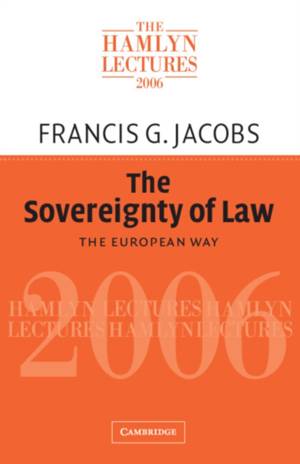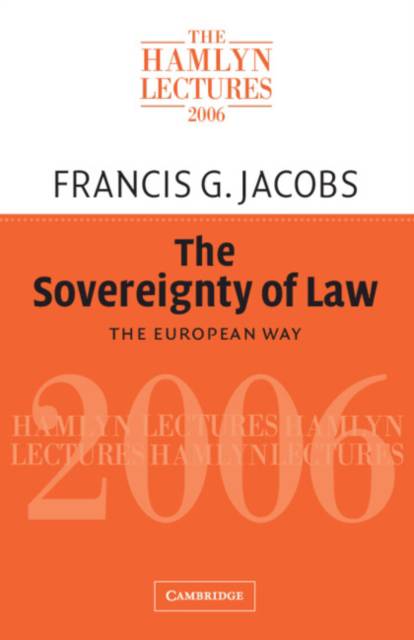
- Afhalen na 1 uur in een winkel met voorraad
- Gratis thuislevering in België vanaf € 30
- Ruim aanbod met 7 miljoen producten
- Afhalen na 1 uur in een winkel met voorraad
- Gratis thuislevering in België vanaf € 30
- Ruim aanbod met 7 miljoen producten
Zoeken
€ 61,95
+ 123 punten
Omschrijving
Recently, the role of courts has changed dramatically. Not only do courts now have to decide cases between parties, they also often have to choose between competing fundamental values. Judges may have to balance the potentially conflicting interests of human life and human dignity; freedom of speech and the right of privacy; or free trade and the protection of the environment. The courts may have to circumscribe freedom of religion, and decide when religious dress may be worn. With the non-specialist in mind, and starting from the basic notion of the rule of law, this book explores how judges can and should address such issues. Both the European Convention on Human Rights and the European Union often play a decisive role, and the book points out both the advantages and the difficulties posed by this. Above all, it seeks to promote a more informed debate.
Specificaties
Betrokkenen
- Auteur(s):
- Uitgeverij:
Inhoud
- Aantal bladzijden:
- 264
- Taal:
- Engels
- Reeks:
Eigenschappen
- Productcode (EAN):
- 9780521703857
- Verschijningsdatum:
- 14/06/2007
- Uitvoering:
- Paperback
- Formaat:
- Trade paperback (VS)
- Afmetingen:
- 137 mm x 211 mm
- Gewicht:
- 258 g

Alleen bij Standaard Boekhandel
+ 123 punten op je klantenkaart van Standaard Boekhandel
Beoordelingen
We publiceren alleen reviews die voldoen aan de voorwaarden voor reviews. Bekijk onze voorwaarden voor reviews.








